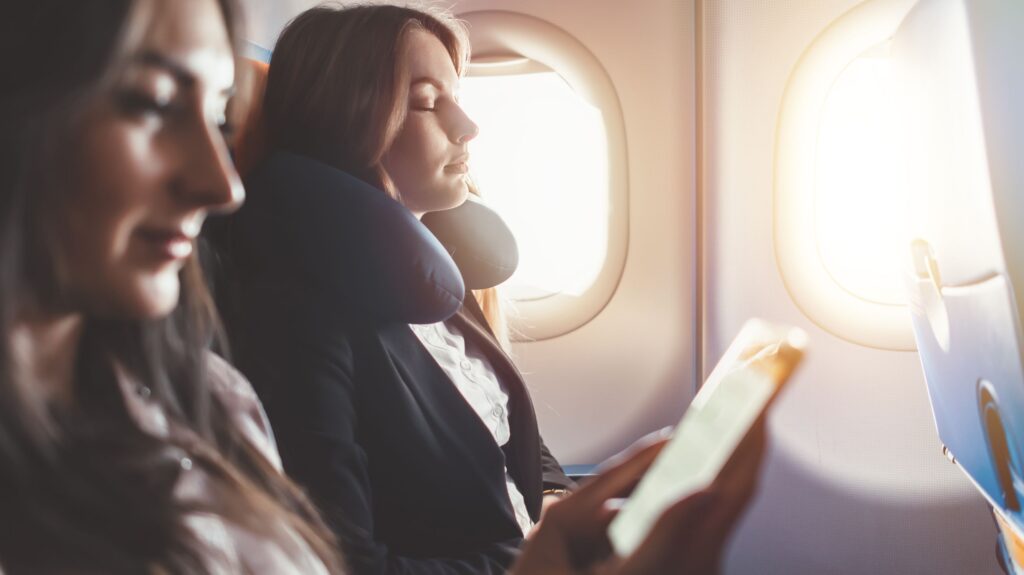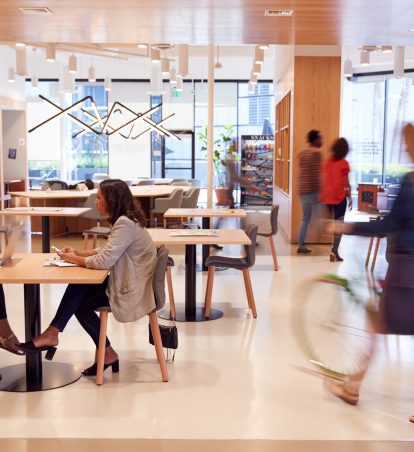Despite Challenges, Business Travel Optimism Reigns
In many aspects of life, growth requires stress. Fruiting flowers, muscle development, learning a new language… you name it; if one is to grow, stress is vital to that change.
The business travel and mobility industries have lived in a constant, relentless state of stress throughout the pandemic. But optimistically, this very stress has unearthed deficiencies in certain legacy service products while clearly defining the value of alternative offerings within the industry (e.g., hotels vs. serviced accommodations). Further, the pandemic helped realign an entire industry to the evolving habits and preferences of a distributed workforce that will undoubtably hasten product, service, and technological advancement. In short, the pandemic is helping the industry grow.
All that is to say, while challenges remain, there is great cause for optimism, especially in the serviced accommodation sector. Agency providers and operators alike stand on the precipice of capitalizing on the product’s well-earned visibility, favorability, and versatility. What stands in question is who. Who will rise up and lead the industry towards a bigger, brighter future?
To quote Maya Angelou, “you can’t really know where you are going until you know where you have been.” So, in the air of transparency and collaboration, we want to share an excerpt from our 2021 half-year report in hopes it helps illuminate current market forces and conditions, so you can adequately prepare your extended-stay housing program for what lies ahead for the serviced accommodation sector.
A return to normalcy?
We celebrated the 2020 holidays in somewhat of an optimistic mood. It felt as if the pain and confusion of 2020 were coming to an end, and while we anticipated a tough H1, it appears that sentiment was overly optimistic. As it turned out, H1 offered little reprieve from 2020, even though certain parts of the world and specific segments did experience an uptick in travel. Synergy’s core extended-stay business, along with the broader hospitality sector, remains well below 2019 levels, but there is cause for optimism. Albeit cautious optimism, as the “bounce” in travel is not universal, remains inconsistent and vulnerable and, where it exists, is generating many challenges of its own.
But challenges are great as they bring about opportunity.
State of Business Travel
As H2 2021 gets underway, many of the world’s foremost business travel destinations are cautiously lifting travel and in-person restrictions as vaccine rates increase while keeping a close eye on the spread of the COVID-19 delta variant. Nonetheless, leisure and business travel remains in a state of flux.

American Airlines noted 47 of its 50 largest corporate accounts plan to resume travel by the end of the year. Yet, the airline industry as a whole reports corporate trips remain 70 percent below pre-pandemic levels, with some reports indicating the industry doesn’t expect 2019 travel levels until 2025. This sentiment supports the Global Business Travel Association (GBTA) recent research, which indicates the U.S. and Western European business travel demand will be 79 and 77 percent, respectively, of 2019 numbers by 2025.
Furthermore, GBTA also notes three of four (77%) GBTA members and stakeholders feel their employees are “willing” or “very willing” to travel for business in the current environment, with nine of 10 stating they plan to resume domestic travel. However, government policies and restrictions relating to international business travel continue to impact their companies’ abilities to conduct essential international business functions.
While the willingness to travel for business is there, the delta variant continues to spread around the globe and is now reported in over 100 countries. Its impact on India continues to unfold daily, with a new study estimating the death toll “to be well over 3 million.” In the U.S., the delta variant accounted for 83 percent of all new COVID-19 cases in recently released data by the Center for Disease Control (CDC) [6], whereas the U.K.. experienced its highest daily COVID-19 case count since its peak in January, reporting over 50k new positive results on the 17th of July, mere days before it lifted countrywide restrictions on the 19th of July. Ireland remains at a Level 5 risk, and the E.U. is just starting to emerge from a vaccination program that could, sympathetically, be termed “sluggish.”
Singapore reintroduced tighter countrywide measures, restricting indoor dining and limiting the maximum number of people allowed to gather from five to two, noting that it received the country’s highest number of reported cases between the 12th of July and the 18th of July since April of 2020. Needless to say, cross-border travel within APAC remains so limited and difficult that the region is primarily closed.
State of the Serviced Accommodation Sector
Equally, while the uncertainty of when business travel and global mobility will resume remains an issue for Synergy clients, supply certainty is of equal concern. Many operators reduced their corporate apartment caps as long-term vacancy is at all-time lows. Not to mention, major apartment lenders remain hesitant to lease units to corporate travel operators due to skipped rents during the pandemic, labeling the business risky. Further crunching supply availability is the added space, bedroom, and in-unit amenity needs of remote work.
Adding to the inventory constraints, worldwide home prices are skyrocketing due to extreme shortages in affordable housing. According to Zillow, U.S. year-over-year home appreciation for June rose 15 percentage points, breaking a record dating back to 1996. With extreme shortages in housing inventory, renters who typically transition out of an apartment lease and into homeownership are priced out of the current market, further compressing available supply.

Moreover, the supply compression is creating upward pressure on rental rates. According to rental website Apartment List, median apartment rent in the U.S. rose a historical 9.6 percent through the first six months of 2021, a total of six percentage points above the typical 2-3 percent increase.
Synergy conducted an external survey of over 50 major global corporations to gauge return to work sentiment to better forecast pent-up demand. In welcomed news to the business travel segment, the results showed a significant preference to return to the office in some capacity, with most respondents preferring to adopt a hybrid/virtual assignment model.
Based on this feedback, we anticipate longer but fewer business trips, alterations in terms of service, and enhancements to products and service offerings to meet the needs of a hybrid/virtual assignment work environment. In short, a hybrid/virtual assignment model will lead to a broader interest in “fit for purpose” accommodation options reaching new segments of global travelers.
Final Thoughts
Given the current market conditions and the state of supply, travel protocols, and government policy instability, fundamental barriers inhibit the swift return of international business travel.
However, what is clear is the strong desire to commence business travel once the conditions and regulations support its return. Based on that sentiment, we can assume a wave of pent-up demand to unleash and impact the international marketplace, much like we already see in the U.S.
Opportunities remain abundant as the sector adapts and capitalizes on the broader interest the product and service set achieved thus far throughout the pandemic. And while uncertainty remains, the long-term future is bright for the serviced accommodation industry and primed to better serve its client base.
If you have any questions about how to better prepare your extended-stay housing program for the challenges that lie ahead, please visit our webpage, www.synergyhousing.com/choose-synergy/#/corporate, and schedule a consultation today.





